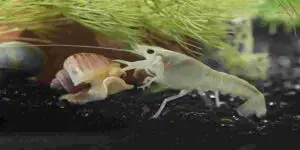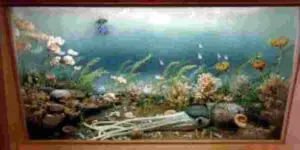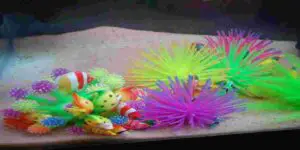Aquarium Snails: Best Guide for Tank Snails
Aquarium snails are a popular addition to freshwater tanks, as they can help keep the tank clean by eating algae and other debris. They come in a variety of sizes and shapes, from small snails that can fit on a fingernail to larger ones that can reach several inches in length.

Is snail poop good for plants aquarium? (Benefits, Tips & risks )

aquarium Snail waste as fertilizer? (Benefits & Best Ways)

Signs of a sick mystery snail? (Treatment & Symptoms)

can you cycle a tank with mystery snails? (Benefits & Risks)

Can I cycle aquarium with snails? (Benefits & Tips)

How to get my snail out of the decoration? (Best Guide for Beginners)

Does Flourish Kill Snails? (Potential risks)

will bleach kill aquarium snails? (Effects & Risks)

will hot water kill aquarium snails? (Best guide for beginners)
Here’s a guide to help you care for your aquarium snails:
Tank setup:
Snails require a suitable environment to thrive. A well-maintained aquarium with clean water, live plants, and a substrate that doesn’t harm them is ideal. Snails also need good lighting and adequate hiding places.
Water quality:
Snails are sensitive to water conditions, so it’s essential to keep the tank water clean and balanced. Regular water changes, filter maintenance, and testing the water parameters for ammonia, nitrite, and nitrate levels are essential.
Food:
Snails are omnivores and will eat algae, decaying plants, and leftover fish food. However, it’s best to supplement their diet with specialized snail food that contains calcium, which is essential for their shell health. You can also feed them boiled vegetables like cucumber, zucchini, and spinach.
Population control:
Snails reproduce quickly, so it’s essential to keep their population in check. Avoid overfeeding and remove any eggs or snails from the tank that you don’t want to grow into adults.
Compatibility with other tank inhabitants:
Some fish species may prey on snails, so it’s essential to research the compatibility of different species before adding them to the same tank.
Common snail species:
There are many snail species available in the aquarium trade, including nerite snails, mystery snails, apple snails, ramshorn snails, and Malaysian trumpet snails. Each species has different care requirements, so it’s essential to research them before adding them to your tank.
Cleaning:
Snails can leave behind waste and debris, so it’s essential to clean the tank regularly. However, be careful not to disturb the snails or their habitat while doing so.
Aquarium snails can be a great addition to your freshwater tank as long as you provide them with a suitable environment, proper nutrition, and maintain good water quality. It’s also essential to keep their population in check and research the compatibility of different species before adding them to the same tank.
